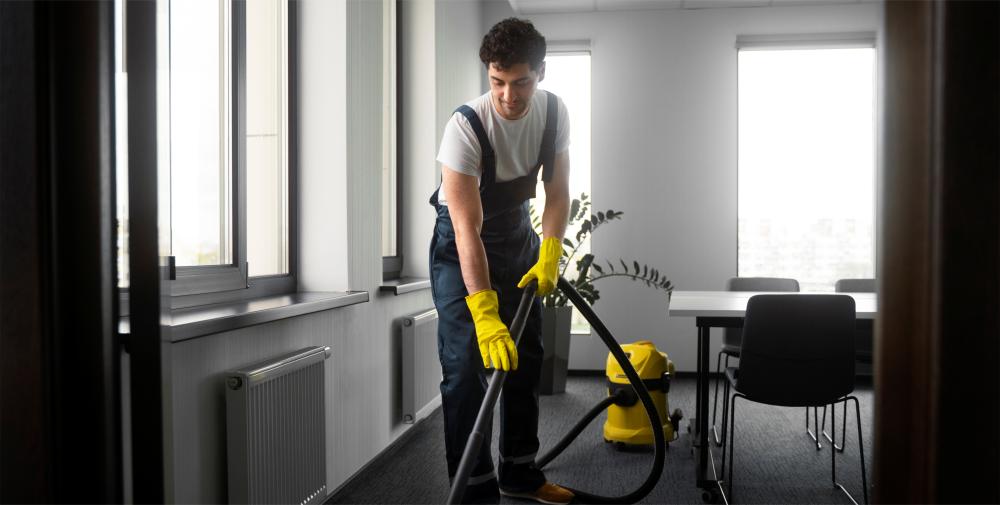Professional Office Cleaning Benefits

Often, companies focus on the more visible facets like marketing, product innovation, or talent acquisition, overlooking seemingly mundane aspects such as maintaining a clean office. But what if something as simple as regular professional office cleaning could make a substantial difference in your business profitability?
Surprising as it may sound, numerous studies and surveys reveal that cleanliness in the office environment significantly contributes to various aspects of business success. It’s not just about a shiny facade or a pleasant smell – the impact ranges from improved employee productivity and reduced sick days to stronger first impressions and extended asset life.
- Productivity and Performance
According to a survey by Staples, 94% of workers reported feeling more productive in a clean workspace, while 77% claimed they produce a higher quality of work in a clean environment.
A clean workplace can help eliminate distractions like clutter and dirt, leading to better concentration. So, money spent on professional cleaning services can be seen as an investment in productivity – cleaner offices can lead to higher revenues due to increased output.
- Health and Sick Days
A study by the University of Arizona found that the typical office desk has 400 times more bacteria than a toilet seat. This can contribute to employees taking sick leave. The Bureau of Labor Statistics reports that businesses lose 2.8 million workdays each year due to injuries and illnesses, which can be significantly reduced with regular, thorough cleaning.
High employee absenteeism due to illness is a cost business often overlook. By reducing germs through professional cleaning, companies can cut down on sick leave taken by employees, meaning more workdays are productive. The investment in cleaning, therefore, returns direct monetary benefits by reducing the lost workdays and potential healthcare costs.
- Employee Morale
A study conducted by HLW International LLP found that employees working in clean and well-maintained offices are 12% more productive and have higher job satisfaction.
When employees are happy, they are more likely to stay with a company, reducing recruitment and training costs. Furthermore, higher morale leads to greater productivity, and in customer-facing roles, it can lead to improved customer service. The cost of cleaning is, therefore, offset by improved employee retention and customer satisfaction.
In fact, several psychological studies and findings suggest that employee morale significantly impacts productivity levels. A study published in the Journal of Occupational and Organizational Psychology found that employees who are happier at work tend to be more engaged and perform their tasks more effectively.
According to a study by the Center for American Progress, the cost of employee turnover can range from 16% of an employee’s salary for low-paying jobs to 213% for executive positions. A study in the Journal of Service Research even found a positive correlation between employee satisfaction and customer loyalty, which directly contributes to a company’s profitability.
- Air Quality & Health
Indoor air quality can be 2 to 5 times more polluted than outdoor air, according to the Environmental Protection Agency (EPA). Regular cleaning reduces dust and other pollutants, improving indoor air quality and reducing the risk of respiratory issues among employees.
The National Air Duct Cleaners Association (NADCA) estimates that dirty coils and blowers in commercial HVAC systems can reduce efficiency by as much as 40%.
The EPA suggests that selecting cleaning products that are low in volatile organic compounds (VOCs) can help maintain better indoor air quality.
While these figures are estimates, they illustrate how regular cleaning can contribute to tangible cost savings. It’s clear that professional cleaning isn’t just an expense – it’s an investment in the long-term value and functionality of a company’s physical assets.
Share this: